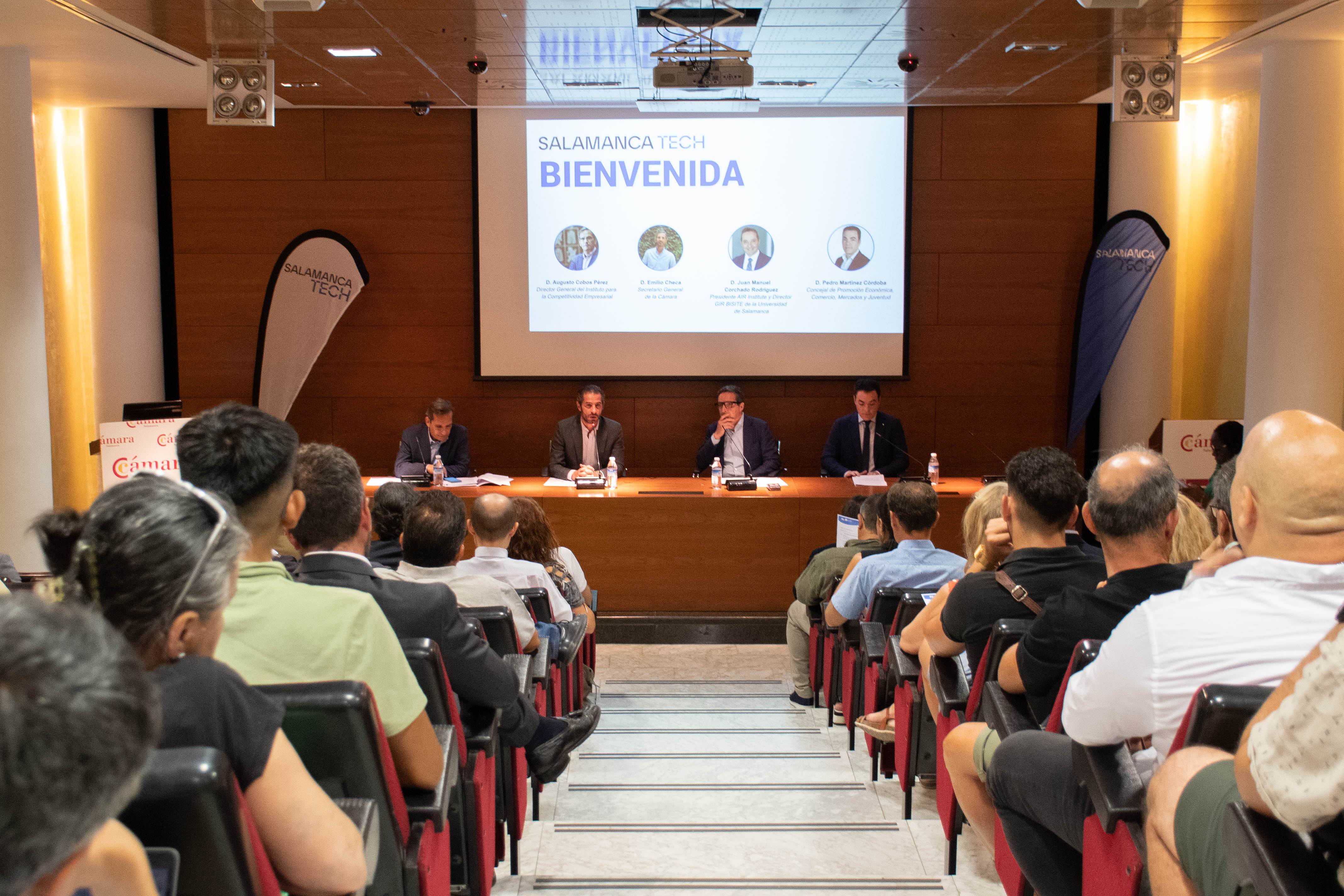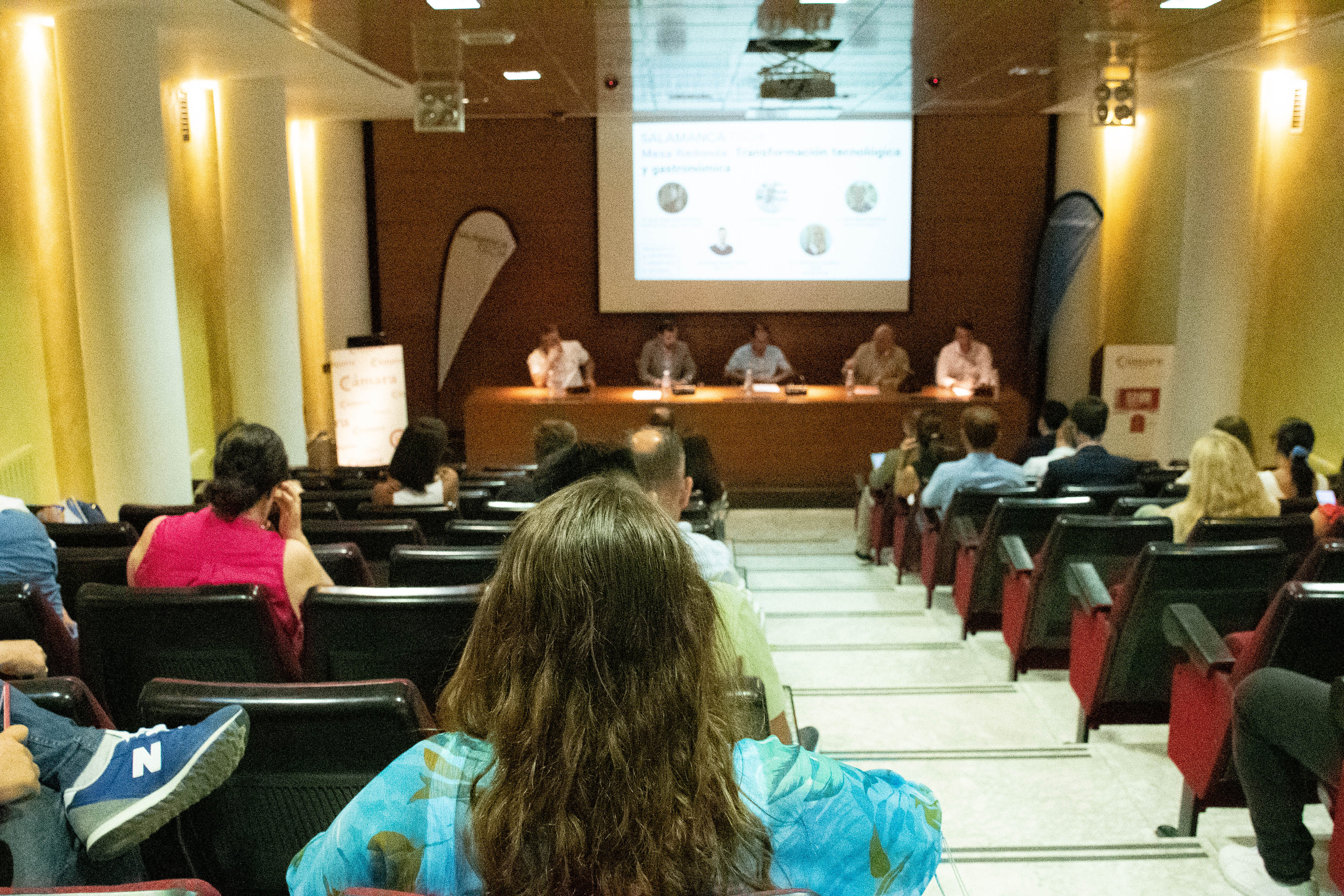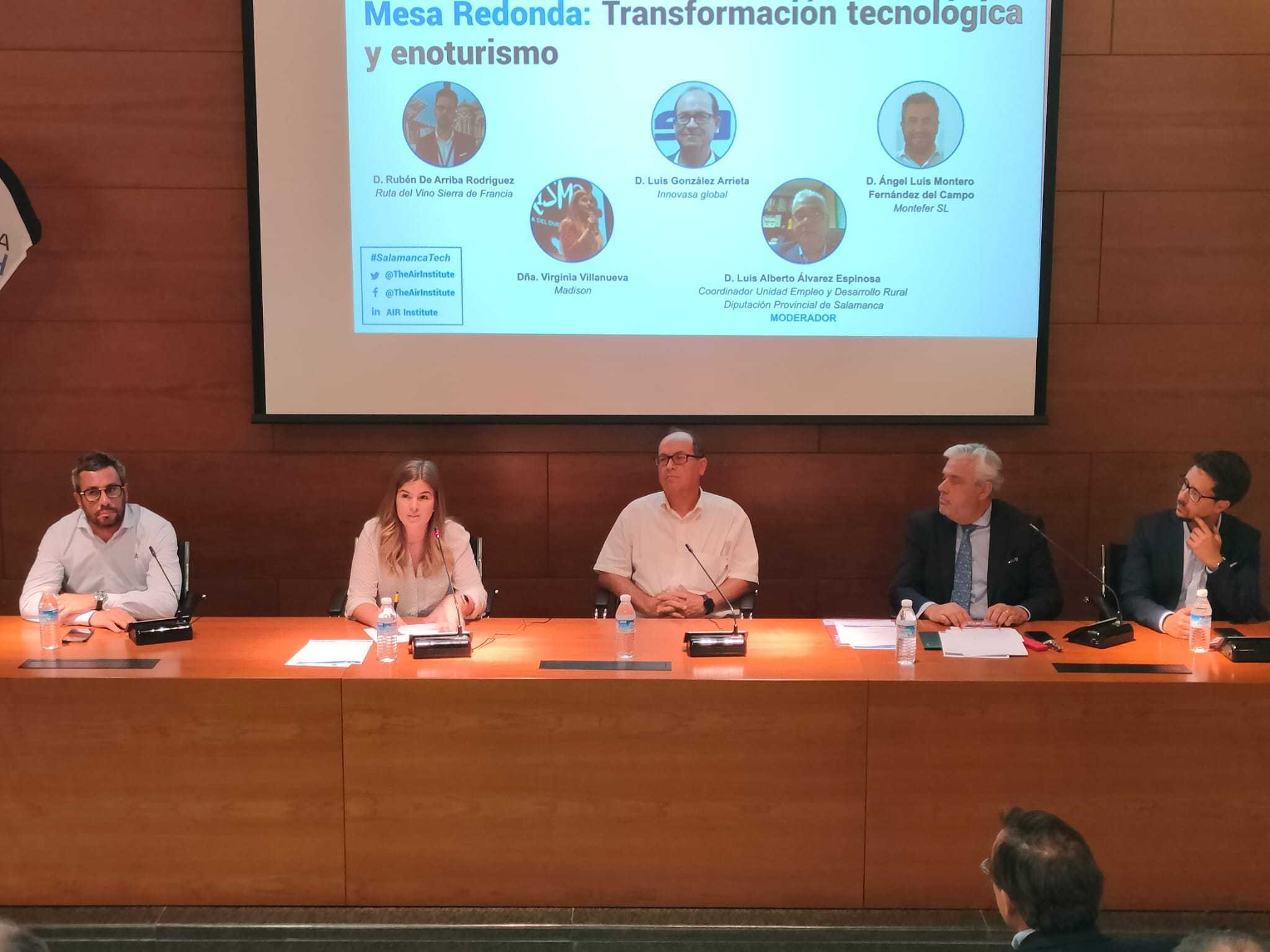Salamanca Tech brings together professionals from the meat, gastronomy and wine industries at the Chamber of Commerce event
Salamanca Tech is the initiative launched by AIR Institute and the BISITE Research Group of the University of Salamanca in collaboration with the Town Council of Salamanca, which aims to publicize the potential and work developed in the province to stimulate economic development, promote entrepreneurship and attract new companies. Thus, the objective is that the trade identify Salamanca as a reference through several pillars: science, technology, logistics, sustainability, health and entrepreneurship.
After its presentation last May to around 400 attendees at the Palacio de Congresos, Salamanca Tech continues to organize face-to-face events to facilitate contact, cooperation and joint efforts. On this occasion, on the morning of July 18, the Chamber of Commerce hosted the conference "Technological innovation in the primary sector", which brought together professionals and experts from the meat, gastronomy and wine industries.
Event opening
The opening of the event was attended by Pedro Martínez Córdoba, Councillor for Economic Promotion, Trade, Markets and Youth of the Town Council of Salamanca; Emilio Checa, Secretary General of the Chamber of Commerce; Juan Manuel Corchado, President of AIR Institute and Director of the BISITE Research Group of the University of Salamanca, and Augusto Cobos, Director General of the Institute for Business Competitiveness of Castilla y León (ICE).

Emilio Checa welcomed the more than 80 attendees on behalf of the Chamber of Commerce and said he admired the Salamanca Tech project and the work done during the last months. For his part, Juan Manuel Corchado announced that three more meetings are planned for September, which will deal with topics such as technological innovation in the bio-health field, engines for technological development and quantum technology, ensuring the presence of companies such as Airbus. Pedro Martínez Córdoba affirmed that, for the Mayor of Salamanca, Carlos García Carbayo, Salamanca Tech is a priority, and highlighted the good pace of current projects such as the Dry Port, Tormes+, Savia and the Artificial Intelligence and Internet of Things Center in Puente Ladrillo. Finally, Augusto Cobos stressed that "it is very important for Salamanca to be a technological benchmark, and this can be achieved through collaboration".
Roundtable discussions
Three roundtables were held at the meeting, consisting of experts from companies and institutions that carry out their economic activity in Salamanca. The first of these, "Technological transformation in the ham sector", emphasized the benefits of introducing technology and the need to ensure that the best product in Salamanca is also seen abroad. Ramón Hernández (Ibéricos Felipe Hernández) said that it is very important to adapt to customer demands and, although it is more complicated in small companies, "there is a business opportunity thanks to the 100% natural product". Francisco Blázquez (Jamones Blázquez) considered it fundamental to have "meetings like this one to bring us closer to each other and to know what is offered to us by the institutions". Together with them, Fernando Criado (PROTOinfo) and Vidal Moreno (University of Salamanca), coincided in the debate moderated by Rafael Bolívar (Guijuelo Denomination of Origin) in the need to articulate common actions and projects despite the heterogeneous nature of the sector.

The second roundtable, "Technological and gastronomic transformation", moderated by Luis Enrique Corredera (Deloitte), was attended by Jesús Ángel Blanco (Soleae Extra Virgin Olive Oil), who highlighted the change that technology has brought about in olive oil tourism, with the use of computer programs to segment and find suitable customers, as Enrique Santero (Alaiz Foods) also stated. "We must make it clear what we produce in the province and take the promotion of local products very seriously," commented Eusebio García (El Majuelar). For his part, Javier Meana (Aceite AQ5 Sabores) agreed on the need to disseminate actions which are continually being carried out in Salamanca and are of interest to the sector.

"Technological transformation and wine tourism" was the third and last roundtable. Moderated by Luis Alberto Álvarez Espinosa, coordinator of the Employment and Rural Development Unit of the Provincial Council of Salamanca, it led to conclusions such as the importance of innovation and technology, which allow wine companies to access geographic information systems to know where the tourist comes from and offer facilities to know the exact origin of the product, as stated by Rubén de Arriba (Sierra de Francia Wine Route). Luis Gónzalez Arrieta (Innovasa Global), Virginia Villanueva (Madison) and Ángel Luis Montero (Montefer SL) agreed with him, believing that, although the progress is still slow, "there are some advances and the positive side is that we are on the right track". According to what was said at the table, "wineries are a very important economic engine in Salamanca" and the tools for SMEs "exist in Salamanca and in the region, and we must take advantage of the opportunities".

Event conclusion
The event was brought to an end by Benjamín Crespo Andrés, President of the Chamber of Commerce, who, accompanied by Juan Manuel Corchado, gave way to time for networking and tasting of local products. The attendees were able to enjoy hams, oils, wines and liquors provided by the collaborating companies and each of those present was given a bottle of wine from the Sierra de Salamanca denomination of origin.
